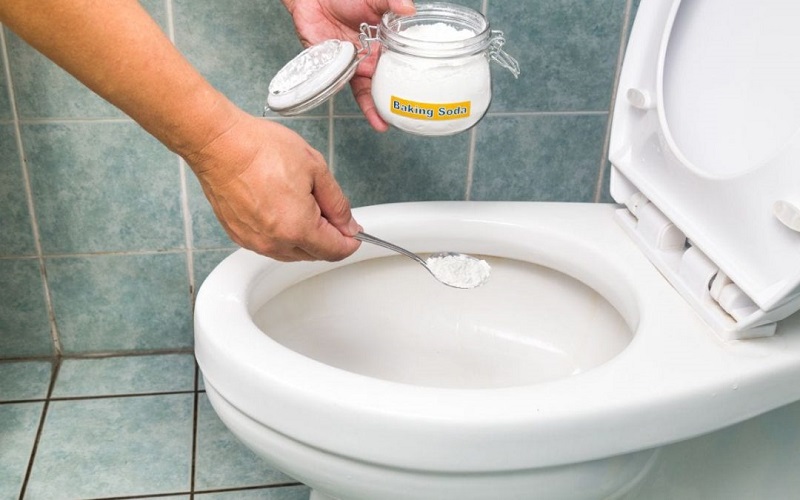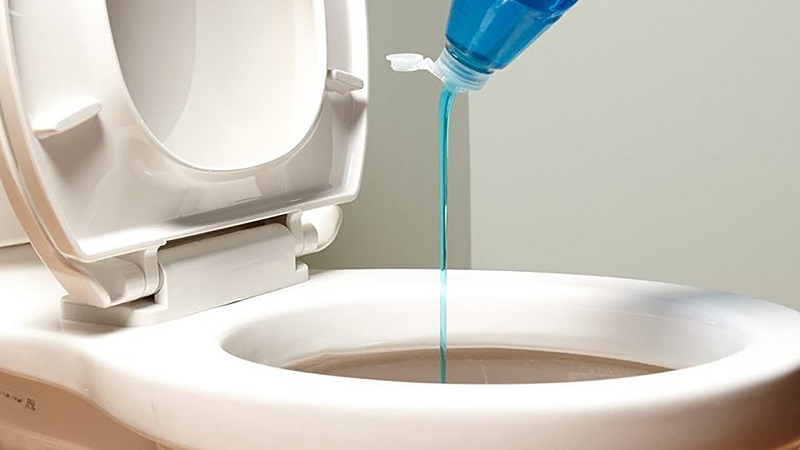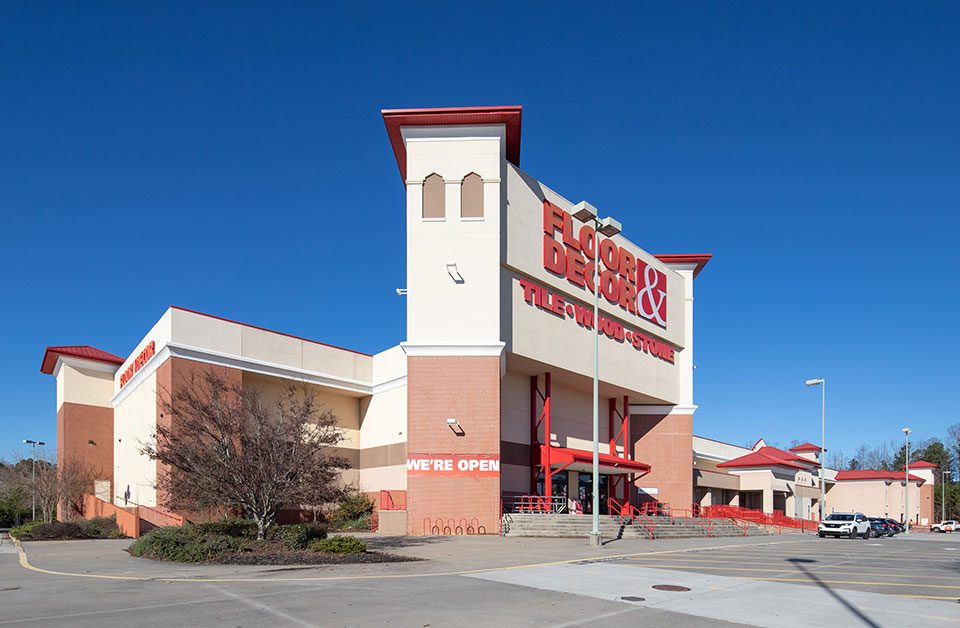
How to cut dragon fruit into cubes
August 22, 2023
How to Use Shazam on Snapchat: Unveiling the Musical Magic!
August 27, 2023How Do Plumbers Get a Clogged Toilet Unclogged?
Picture this: it’s a normal day, you’re going about your business, and suddenly, disaster strikes – your toilet is clogged! The panic sets in as you frantically try to figure out what to do. Don’t worry, you’re not alone in this battle. Plumbing superheroes, better known as plumbers, are here to save the day. In this guide, we’ll delve into the world of clogged toilets, the essential role plumbers play, and the techniques they employ to unclog even the peskiest of blockages.
Table of Contents
ToggleSetting the Stage: The Dreaded Clogged Toilet
Ah, the clogged toilet – a nuisance that can turn an ordinary day into a plumbing nightmare. Whether it’s too much toilet paper, a foreign object, or just a hairball, toilet clogs can strike when you least expect them. Thankfully, there are skilled plumbers ready to dive into the depths of your toilet troubles.
The Essential Role of Plumbers
Plumbers are like the unsung heroes of the household. They keep our pipes flowing, our sinks draining, and our toilets flushing. When it comes to a clogged toilet, plumbers step in with their expertise, tools, and know-how to save the day.
An Informative Guide to Toilet Unclogging
Let’s break down the process of unclogging a toilet step by step. From understanding the causes of toilet clogs to the methods plumbers use, we’ve got you covered.
Understanding the Causes of Toilet Clogs
Toilets may seem sturdy, but they’re not invincible. There are several common culprits behind clogged toilets that plumbers often encounter:
Excessive Toilet Paper Usage
While toilet paper is a bathroom essential, overindulgence can lead to clogs. Plumbers are well-versed in dealing with paper-related predicaments.
Foreign Objects and Toys
Curiosity can sometimes lead to unexpected items finding their way into the toilet bowl. Plumbers have seen it all – from small toys to miscellaneous objects.
Hair and Personal Care Products
Hair, along with products like cotton swabs and dental floss, can contribute to stubborn clogs. Plumbers tackle these tangles head-on.
Tools of the Trade: What Plumbers Use
Plumbers have an arsenal of tools at their disposal to tackle toilet clogs with precision and expertise.
Plungers: The Classic Solution
Ah, the trusty plunger – a staple in any plumber’s toolkit. With the right technique, plungers can work wonders in dislodging clogs.
Augers and Snakes: Deeper Clog Removal
For more stubborn clogs, plumbers turn to augers and snakes. These flexible tools navigate the twists and turns of pipes, breaking up clogs along the way.
Hydro Jetting: Powerful Pressure Cleaning
Hydro jetting involves using high-pressure water to blast away clogs and buildup. Plumbers use this method to ensure a thorough and deep clean of your pipes.
Camera Inspection: Identifying Hidden Issues
Modern plumbing technology includes cameras that can be inserted into pipes, allowing plumbers to visually assess clogs and identify any underlying problems.
Step-by-Step Unclogging Process
When you summon a plumber to rescue your clogged toilet, here’s what you can expect:
Preliminary Preparations
Before tackling the clog, plumbers gather the necessary tools and ensure safety measures are in place.
Method 1: Plunger Power
Choosing the Right Plunger
Not all plungers are created equal. Plumbers select the appropriate plunger for the job at hand.
Creating a Proper Seal
Achieving a proper seal between the plunger and the toilet bowl is crucial for effective plunging.
Applying Controlled Pressure
Plungers work best with controlled, rhythmic pressure. Plumbers skillfully maneuver the plunger to dislodge the clog.
Repeat if Necessary
Sometimes, unclogging requires persistence. Plumbers repeat the plunging process if the clog doesn’t budge initially.
Method 2: Auger Assistance
Types of Augers for Toilets
Plumbers have various types of augers designed specifically for toilets. These tools are adept at navigating the twists and turns of toilet pipes.
Inserting and Turning the Auger
Plumbers carefully insert the auger into the toilet drain and turn it to break through the clog.
Breaking Through the Clog
With patience and skill, plumbers use the auger to break down and dislodge the clog, allowing water to flow freely again.
Method 3: Hydro Jetting Deep Clean
How Hydro Jetting Works
Hydro jetting involves using a high-pressure stream of water to obliterate clogs and remove debris from the pipe walls.
Professional vs. DIY Hydro Jetting
While DIY attempts are possible, professional plumbers have the experience to wield high-pressure water safely and effectively.
Expert Handling of High-Pressure Water
Plumbers precisely control the water pressure to avoid damaging pipes while still ensuring a thorough clean.
Method 4: Camera Inspection and Diagnosis
Inserting a Plumbing Camera
Plumbers insert a small camera into the pipes to get a clear visual of the clog and the overall condition of the plumbing.
Visualizing the Clog and Pipe Condition
The camera reveals the extent of the clog and highlights any potential issues within the plumbing system.
Determining Further Actions
Based on the camera’s findings, plumbers decide on the most appropriate course of action to fully address the clog and prevent future occurrences.
Prevention is Key: Tips to Avoid Future Clogs
While plumbers are skilled at unclogging toilets, preventing clogs in the first place is the ultimate goal.
Mindful Flushing Habits
Educating household members about what should and shouldn’t be flushed can go a long way in preventing toilet clogs.
What Should and Shouldn’t Be Flushed
Plumbers recommend only flushing toilet paper and waste down the toilet. Items like paper towels, cotton balls, and hygiene products should be disposed of in the trash.
Educating Household Members
A little education can save you from a lot of plumbing woes. Teach everyone in your household about proper toilet etiquette.
Regular Maintenance
Plumbers advise regular pipe inspection and maintenance to catch and address potential issues before they escalate.
Periodic Pipe Inspection
Having a plumber inspect your pipes periodically can identify developing clogs or other plumbing problems.
DIY Cleaning Solutions
Plumbers may recommend DIY cleaning solutions to keep your pipes running smoothly between professional maintenance.
Professional Maintenance Scheduling
Regular appointments with a professional plumber ensure that your plumbing system remains in top-notch condition.
When to Call a Professional Plumber
While DIY attempts at unclogging can be tempting, there are situations where calling a professional plumber is the best choice.
Recognizing When DIY Won’t Suffice
If your DIY efforts haven’t yielded results or the clog seems particularly stubborn, it’s time to bring in the experts.
Signs of More Serious Plumbing Issues
Persistent clogs, slow drainage, and foul odors could indicate more serious plumbing problems. Plumbers have the experience to diagnose and address these issues.
Importance of Timely Intervention
Leaving a clog unattended can lead to more extensive damage to your plumbing system. Timely intervention by a plumber can prevent costly repairs down the line.
Expert Insights and Stories
Plumbers have their fair share of stories and experiences. Here are a few real-life anecdotes that shed light on the unpredictable nature of toilet clogs:
Conclusion
In the battle against clogged toilets, plumbers emerge as the heroes. Armed with expertise, tools, and determination, they triumph over toilet troubles, ensuring a smooth and hassle-free bathroom experience.
Plumbers truly are the unsung heroes of our homes. They brave the murky depths of pipes to keep our toilets flowing freely.
By following preventative tips and knowing when to call in the experts, you can maintain a bathroom experience that’s free from clogs and plumbing woes.
FAQs
Can I use chemical drain cleaners to unclog my toilet?
While it’s tempting, chemical drain cleaners can damage your pipes and may not be effective for serious clogs. It’s best to rely on professional plumbers for unclogging.
What’s the biggest mistake people make when trying to unclog a toilet themselves?
One common mistake is using excessive force, which can worsen the clog or damage the plumbing. It’s better to approach the situation calmly and call a plumber if needed.
Are there any home remedies for unclogging a toilet?
Yes, you can try using a mixture of baking soda and vinegar, followed by hot water. However, these remedies might not work for all clogs, especially stubborn ones.
Why is preventive maintenance important for plumbing systems?
Preventive maintenance helps catch and address minor issues before they escalate into major plumbing problems. It can save you from costly repairs and inconveniences.
How do I choose the right plumber for my clogged toilet?
Look for plumbers with a good reputation, positive reviews, and proper licenses and certifications. Asking for recommendations from friends and family can also be helpful.





